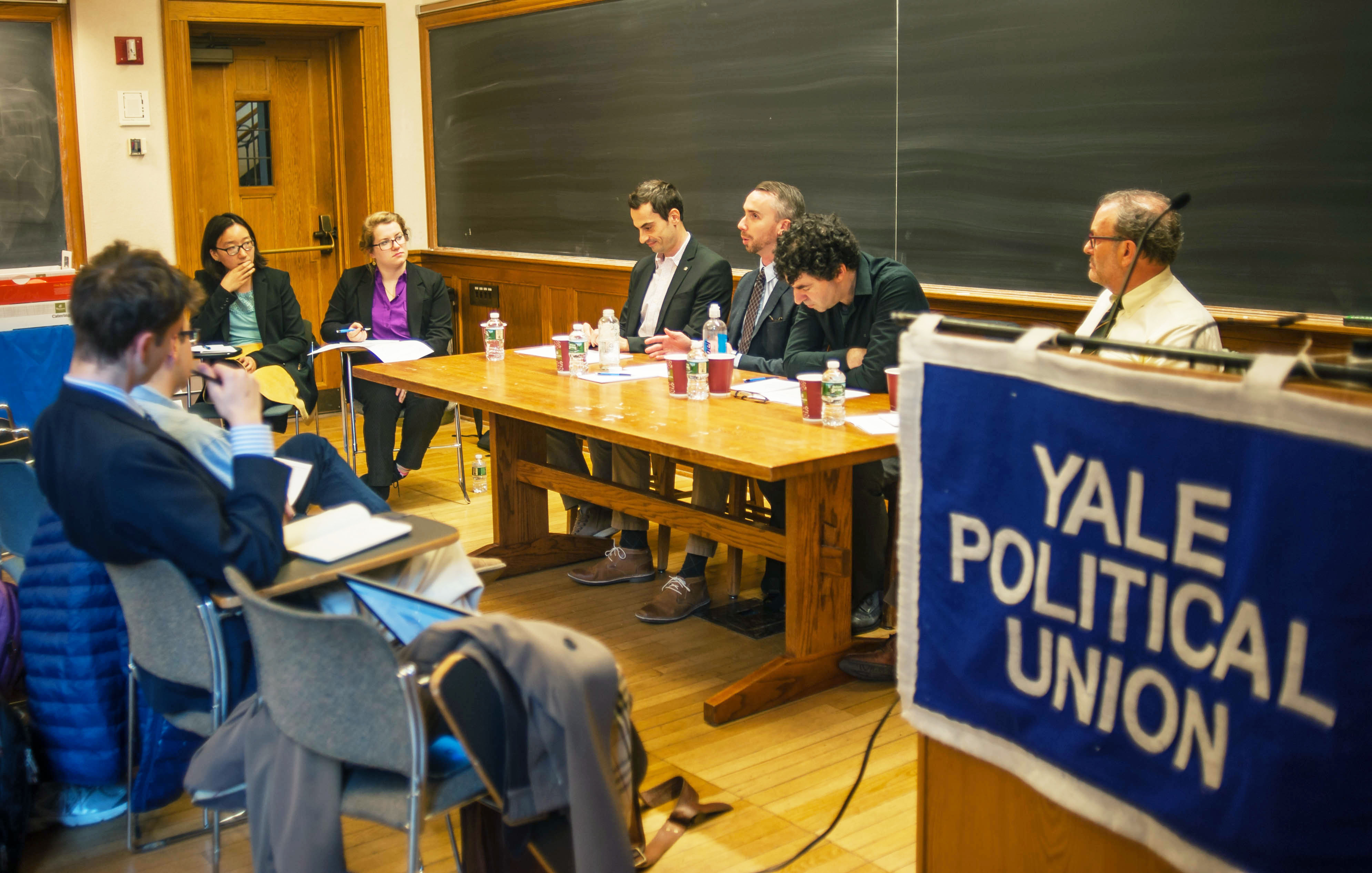
Courtesy Amy Wong
The Yale Political Union held its first-ever Democracy Colloquium, a series of talks and panels featuring keynote speeches by The New York Times columnist Ross Douthat and National Public Radio senior editor Ron Elving, this weekend.
The colloquium, which coincided with the last week of the 2016 presidential election, brought together Yale professors, journalists and pundits, culminating in an official YPU debate on Saturday night. The colloquium also drew attendees from beyond Yale’s campus, including students from Columbia University and the University of Pennsylvania.
“This being such a strange and preposterous election cycle, we thought it would be good to focus specifically on the major themes and questions of the 2016 election,” colloquium organizer Brendan Hellweg ’18 said. “We wanted to have more of an outwardly focused event to provide a different outlet for Yale students to interact with other debating organizations on other campuses and provide a different sort of interaction with the YPU.”
The YPU holds a debate each week but Saturday’s debate featured a keynote speech from Douthat, the youngest op-ed columnist ever hired by The New York Times and the author of “Bad Religion: How We Became a Nation of Heretics.” Douthat addressed America’s two-party system, the topic of the debate.
In his talk, Douthat argued that both the Democratic and Republican parties have descended into chaos during this election cycle, and outlined each party’s historical trajectories while also detailing the historical role of third parties in American politics.
After the debate, the YPU voted in favor of rejecting the two-party system by a two-vote margin, with Douthat voting with the majority.
“We wanted someone to speak pretty broadly on the major themes of the election, and Douthat seemed like a great fit for that,” Hellweg said. “He’s someone who we’ve wanted to host for a long time.”
On Friday night, keynote speaker Elving — an adjunct professor at American University and senior editor and correspondent for NPR News in Washington — spoke to a smaller crowd in Sudler Hall, discussing the role of media outlets in politics.
“Presented with this irresistible story, the media have been, and perhaps can only be, helpless to resist, and that’s what we’ve seen play out in the last 16 months,” Elving said.
In addition to the two keynote speakers, the colloquium featured two panels, the first of which discussed democracy and its procedures, focusing specifically on primary elections, voter suppression and partisanship.
Touching on the current election, Yale political science lecturer Miranda Yaver said that Republican Presidential nominee Donald Trump “has been running a primary campaign in the general,” while Yale Law School associate professor David Schleicher pointed out that in the U.S. government, “polarization cuts deep.”
The later panel, titled “Populism and Fascism in the U.S. and Beyond” featured experts in populist and fascist movements throughout history, including Washington Post reporter Callum Borchers and Yale sociology professor Jeffrey Alexander.
In discussing Trump, the panel debated whether to label the candidate as a fascist or populist figure.
“I think he is an anti-democratic, noncivil figure committed to another form of government,” Alexander said.
In addition to the formal talks and panels, the colloquium featured informal opportunities over refreshments to allow guests to interact with YPU members and other attendees. YPU President Lina Xing ’17 said it was taxing on the YPU leadership to organize the colloquium in addition to other weekly events, but that she is proud the YPU successfully hosted all four events.
Members of the delegation from UPenn praised the colloquium for its timeliness: Election Day is on Nov. 8. Penn Political Union member Sarah Simon noted that given the similarities between the YPU and the Penn Political Union, she enjoyed engaging with the Yale community over the weekend.
“It was a great opportunity to have an open discussion about issues affecting democracies worldwide,” said Carlos Velez ’20, who attended the colloquium. “The democratic project has never been perfect, and the speakers highlighted its flaws. Still, I think we should have some hope going into Tuesday’s election.”
The YPU was founded in 1934.







